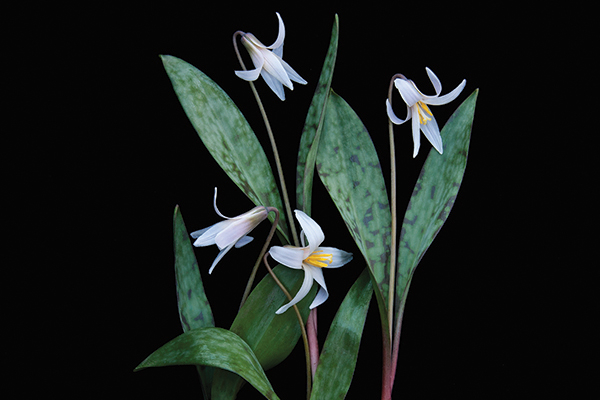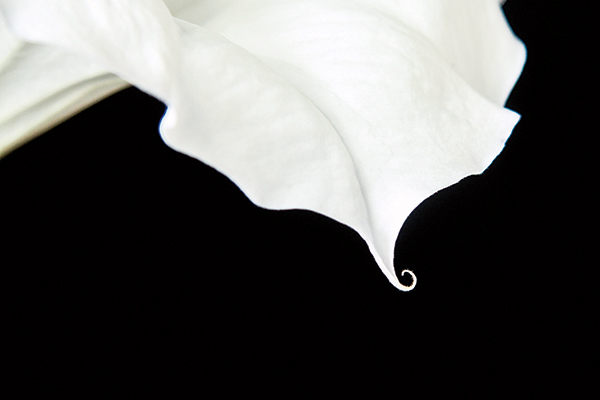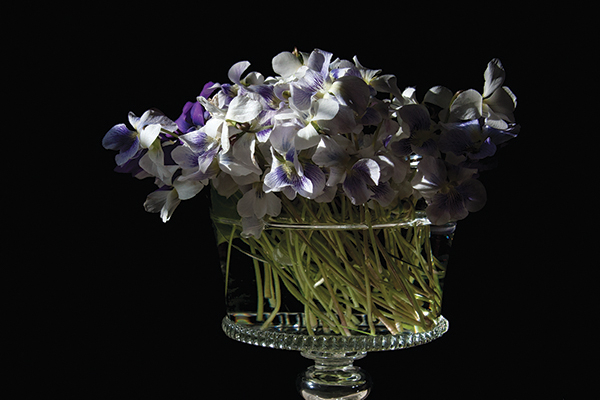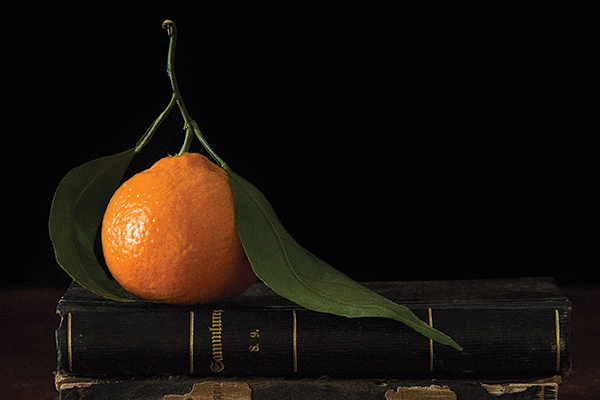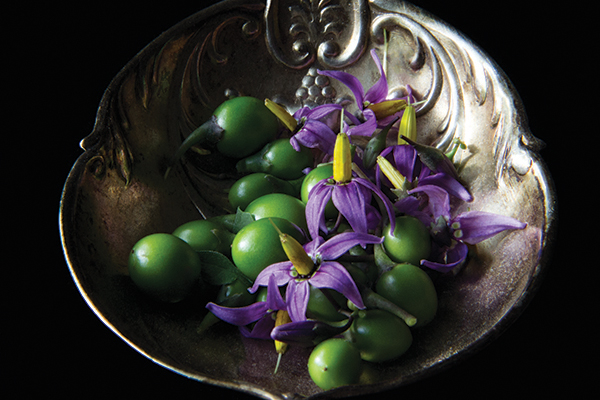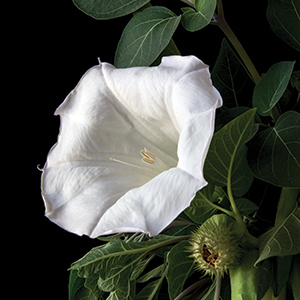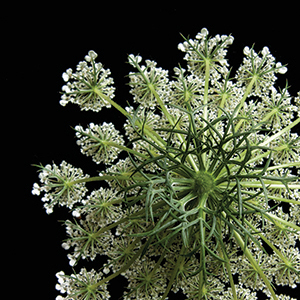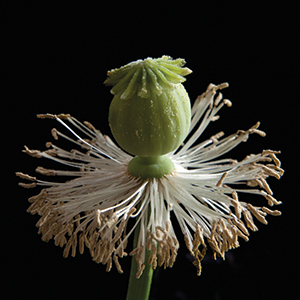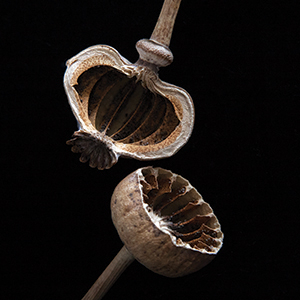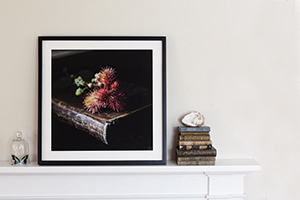Writer: Jody Gifford

Portrait photographer: Karla Conrad.
In first grade, Molly Wood and her grandfather would walk the rolling fields and back roads near his home in Louisiana, shooting photos of the eye-catching trees and plants that grabbed their attention.
“My grandmother died right after my mom was born, and my grandfather realized he didn’t have very many pictures of her to show my mom, so he carried a camera everywhere he went,” recalls Wood, a Des Moines photographer. “Out in the country, we would walk around and take pictures of things that were at my eye level. … Since he had grown up out there, he knew the name of every plant and always had an interesting story about the trees. He really taught me from the ground up.”
Since then, Wood, 53, has turned her childhood curiosity into a career. Managing photo shoots at Meredith Corp. by day and capturing fascinating plant life in her home studio at night, Wood is producing work that would make her grandfather proud.
“I have always liked botanicals,” Wood says. “My daughter was born the same year my father passed away, and I was thinking a lot about mortality and the cycle of life at the time. It’s always been the trees and flowers that I like, but in terms of artwork, it’s using those as a metaphor for the human experience.”
This idea translated into an exhibition held at Olson-Larsen Galleries in Valley Junction earlier this year. Titled “Fatal Flora,” the collection of 10-by-10-inch prints focused on plants that, on one hand, could be used to heal the sick but that were also capable of being toxic, even fatal, if prepared differently. Wood says the idea to feature the plants in this way was born out of heartache.
“Right after my divorce, everyone kept using the word toxic and I thought it was so much more complicated than that—that something in one stage was great and it was really healing, and then became toxic,” Wood says. “There was a complexity there that intrigued me.”
Most of the plants she photographs come from local gardeners and nurseries; others she grows herself. “I try to grow them, but I don’t claim to be a great gardener,” Wood says with a laugh. “Part of the reason I grow them is because they’re interesting when they’re blooming and interesting when they die and start to go to seed. When that happens, I tear them apart and start pulling things off the plant.”
Wood shoots with a sophisticated digital camera, using natural light and isolating her subject against a black velvet backdrop. Susan Watts, owner of Olson-Larsen Galleries, says Wood’s style is breathtaking.
“On a purely aesthetic level, it’s just stunning,” Watts says. “I like her approach in wanting it to look like a Dutch still-life painting. The extreme precision, the importance light plays in her photography—it’s an interesting approach. There’s a lot of still-life and floral out there, and she’s created this series with an interesting back story that tells me she’s a thoughtful and well-versed photographer.” At Olson-Larsen, she says, “We’re interested in work that is lovely to look at but has substance.”
Wood will exhibit even more of her botanical photography in a new exhibition titled “Photo Sensitive.” The show includes the work of more than a dozen photographers and runs July 27 through Sept. 22 at Olson-Larsen Galleries. Wood’s pieces will follow a similar theme as her previous show, focusing this time on Renaissance women and the perception at the time that female healers were more witch than savior.
“I’ve done a lot of reading about what plants and botanicals existed in women’s Renaissance medicinal gardens,” Wood says. “Even if women made a potion that cured someone, they would still be accused of witchcraft. They’d say, ‘Go to the church to make you better,’ so it was a power struggle.”
Wood says photos in the July show will measure 30 by 30 inches, the largest she’s ever displayed.
“The impact of something that size is really fun to see when it’s exhibited,” Watts says. “Molly is constantly pushing herself, and it will be fun to see what she comes up with.”

